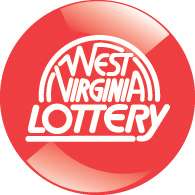According to a report by the Charleston Daily Mail, the state of West Virginia is considering legalizing online gambling to try to counteract the loss of the state’s gambling revenue to casinos across state borders.
“We’re still exploring (online gaming) because we feel that’s the way the industry’s moving, so we want to plan for it,” West Virginia lottery director John Musgrave told the state Lottery Commission after a Tuesday meeting with state casino executives. “We have not yet made any decision for how we’re going to implement it, but we are looking at it, studying it and seeing how our casinos in our jurisdiction can move in that direction.”
West Virginia has five casinos. Four – the Hollywood Casino at Charles Town Races, the Mardi Gras Casino and Resort, the Mountaineer Casino, Racetrack, and Resort, and the Wheeling Island Hotel-Casino-Racetrack – have racetracks in addition to casinos, while one, the Casino Club at Greenbrier, does not. They are spread throughout the state, located along its borders. Hollywood Casino, in particular, appears to be particularly threatened by the Maryland Live! casino, based on geography. While the Hollywood Casino is not all that far away from Baltimore, Maryland Live! is much closer, giving local gamblers no reason to travel to West Virginia to play. Players in western Pennsylvania who might have gone to the Mountaineer or Wheeling Island can easily stay in-state and play closer to home.
“We’re still seeing a decline (in revenue),” the Daily Mail quoted Musgrave as saying. “We still are experiencing competition as the new casinos are coming on in Maryland and some in Ohio. That hasn’t plateaued.”
Another thing that might keep people away from West Virginia casinos is the lack of smoking. The Daily Mail reported that the Hancock County Board of Health passed a ban on indoor smoking on Tuesday and that Jefferson County may do the same. Mountaineer Casino is located in Hancock County; Hollywood Casino at Charles Town is in Jefferson County. Higher-ups at the Mountaineer Casino believe that the ban could dent revenues by as much as 20 percent. It sounds odd that customers would stay away because smoking is not allowed, but traditionally, vices pair with vices. People who like to drink and gamble often like to smoke, as well. If they have a choice between two casinos, one where they can light up a cigarette and one where they can’t, they will choose the one where it is permitted. While I do not have research to back this up, from experience I can say that non-smokers rarely care if a casino allows smoking – it is usually just an accepted part of gambling. The exceptions are poker rooms, where smoking bans are typically appreciated because of the length of time poker players will usually spend there.
Thus, West Virginia needs to try to do something to keep gambling dollars within state borders. It is a situation similar to the one New Jersey has faced. Atlantic City casinos have been losing players to neighboring states at such a rate that four of its twelve casinos have either recently closed or announced their impending closing. To combat the shrinking gambling revenues, New Jersey launched its online gambling industry last November, an industry which includes poker and casino gaming.
Of course, in order to get games like online poker going in West Virginia, state laws would need to be changed and as we know all too well, that is a long, arduous process. Musgrave told the Daily Mail, though, that online lottery sales could be launched without getting a bill passed. “Basically, we think we could implement that now,” he said. 
Three states – Minnesota, Georgia, and Illinois – already have online lottery sales. In all three states, customers can buy regular lotto tickets – the types like Mega Millions and Powerball in which players pick numbers and hope to win a multi-million dollar jackpot drawing – and in Minnesota, players can also purchase “eScratch” tickets online. These tickets mimic the scratch-off tickets that are widely available in grocery stores, convenience stores, and gas stations. Interestingly, not only are they available online, but they can also be bought at certain ATMs and gas pumps. The Minnesota Lottery has taken heat for the eScratch tickets, as the low cost, instant play factor has had them compared to slot machines.
Musgrave said that West Virginia’s online offering would likely be in the form of a smartphone app. He is sympathetic to the plight of gas station owners, who have seen lottery ticket sales decline as people primarily pay for gas at the pump and don’t go into the store. He wants the app to somehow aid those retailers, rather than just having all the revenue go to the state. “We want to take into consideration how we would go through the retailer — the mom and pops. We want to keep those people in the mix going forward and how we can structure this to still keep the retail base to make this happen.”
